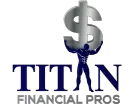Basic Financial Information Tips (Part II)
We did an article before, not too long ago, where we went over some basic terms and information with some added tips as well. We had such a great response to it so far that we decided to release a round 2. Here are some additional financial tips, definitions, and information that will hopefully help you save money or get out of debt.
Scams & bad deals.
Identity theft is the #1 scam. Keep your account numbers, and Social Security # out of the hands of those who don’t need to know them. Don’t pay up-front fees in hopes of obtaining a loan or a credit card. An exception to this rule is a home loan, which usually involves appraisal and credit report fees – paid in advance. Popular loan scams ask people to send a fee for a promised loan or credit card even if their credit rating is bad. Watch out for someone who pays you too much with a phony “certified check” and asks you to wire them the difference. If you do, you lose. Don’t sign untrue statements! Beware of companies who loan to people with bad credit.
Credit cards.
If used well, great tools, if used poorly, financial ruin! If you’re too impulsive, hide your card! To avoid paying interest and fees, pay off your entire balance each month (either early or on time). Most charge no interest if the balance is paid off within the billing cycle. If you pay only the minimum required payment, like one in four Americans, you lose.
Unauthorized use of credit cards.
If a charge – which you did not authorize – appears on your credit card statement, contact the credit card company immediately. Follow-up your dispute in writing within 60 days to ensure your rights.
Disputed items.
If you are dissatisfied with a product or service you charged with your credit card, first make a “good faith” attempt to resolve the dispute with the merchant. If you are unable to resolve it, contact your credit card provider and file an official dispute. Do this within 60 days of the charge to preserve your rights and avoid negative credit, etc.
Debit cards.
If you, or someone else, uses your debit card, money is deducted from your checking account. For pre-authorized purchases (e.g. gasoline or motels) a “hold” is placed on your checking account, usually for an amount larger than the expected charge. This hold can cause other checks or charges to be returned — if you don’t have a sufficient cushion of funds in your account, or a backup system (e.g. overdraft line of credit loan). Once funds are deducted from your account, it is often difficult or impossible to get your money refunded. Don’t use a debit card for mail order, telephone, or internet purchases. Even if you don’t get what you ordered, you may not be able to get your money back.
Reconcile your checking account.
The sooner you do it, the easier it is. As soon as you receive your bank statement, compare it with your check register – item by item. Make sure both you and the bank have recorded things correctly. If you find that the bank has made errors, or the statement includes unauthorized deductions, contact them immediately.
Blank checks.
Keep your blank checks in a safe place. Although you may not be technically responsible if someone steals your checks and forges your name, consumers are often unable to recover their funds which have been deducted from their account. Financial institutions have several defenses including consumers’ negligence.
Bounced checks.
To avoid costly bounced checks, tie your checking account to a revolving line of credit (an empty loan). If you have such a pre-arranged plan, and write a check for more than your available balance, a loan advance is made to pay the check. If you pay off that loan quickly, most financial institutions charge you very little in interest and fees. Keep that line of credit reserved as your checking account backup – and don’t use it for anything else. Bounced check fees, are very costly. Beware; many banks automatically provide very high-cost “bounce protection” programs for those who don’t.
Solicitations.
Don’t give your account numbers, credit or debit cards, or your Social Security numbers to anyone who phones or e-mails you. They may not actually be who they claim to be. They may fraudulently use your information, and the damage done to you financially, or to your credit rating, may cause huge headaches, and a horrendous waste of your time, money and energy trying to correct the problems.
Investing.
If you can’t afford to lose it, don’t speculate with it. The greater the rate, the higher the risk.
Risk Free.
Nothing is “risk-free”. Especially nothing involving money.
Too good to be true.
If something sounds too good to be true, it is! Don’t fall for the scams. Heed the clues!
Credit repair.
Be wary of credit repair services. Some claim to be able to “fix” bad credit. If you have inaccurate information on your credit report, you may contact the credit bureaus directly and correct it yourself. If you have had credit problems, any attempts to remove the relevant information from your credit report are illegal, fraudulent, and only temporary.
These are just a few fundamentals when it comes to widely used financial terms and jargon. Hopefully you found these helpful. If you would like to learn more about how you can better the finances in your own business, then you are more than welcome to contact us and we will take a look at your unique situation and offer some sensible solutions that would work best for you!
“TITAN Financial Pros provide an informational service only and are not responsible for any investments made applying this information. The results described are not distinctive and are not guarantees of future income. Any assumption contains risk and is 100% the responsibility of the individual to assess the risks/rewards involved. We bear no liability assumed or implied for your application of the information shared from this content. This information is for educational and entertainment purposes only.”
Is your business losing money?
Click the button below to get our FREE report on the 5 Most Common Ways Businesses Lose Money and more importantly,
HOW YOU CAN FIX THEM!



